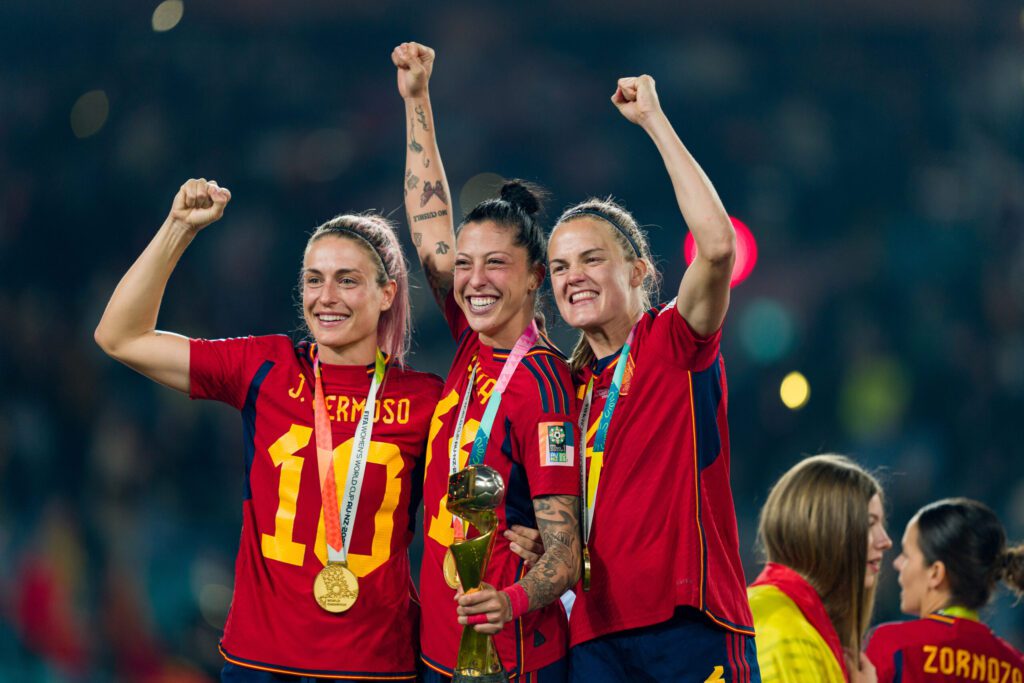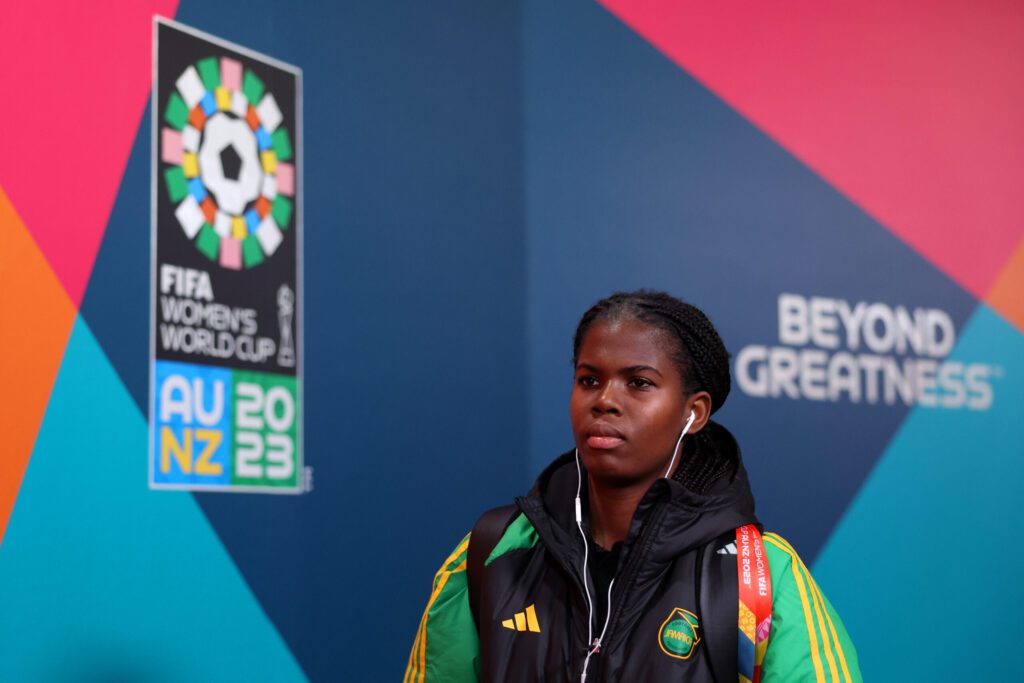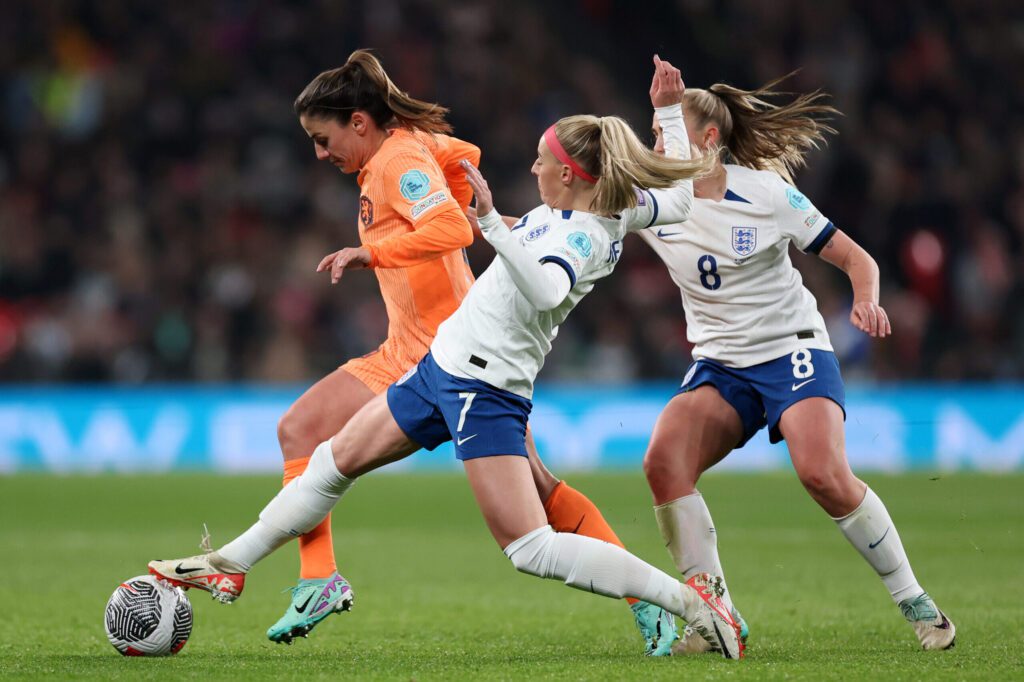Olga Carmona came streaking up the left side of the field, outrunning England’s defense as Mariona Caldentey placed a perfect pass to her feet. Carmona connected, firing a low line drive into the net with 29 minutes gone by.
Carmona also scored in Spain’s semifinal win over Sweden, making her the first player to score in a World Cup final and semifinal since 2015. She became the fourth-youngest player to score in a final at 23 years and 69 days, and the goal ended up being the game-winner, propelling Spain to its first World Cup victory with a 1-0 win over England.
An improbable series of events for an improbable victor.
The goal itself was perfect. Spain executed a series of exceptional passes and Carmona sprinted from her spot as a defender up the sideline, overtaking Caldentey to put her in prime position to score. Her shot rocketed into the opposite corner of the net, past the outstretched arms of a diving Mary Earps.
OLGA CARMONA HAS DONE IT!
— FOX Soccer (@FOXSoccer) August 20, 2023
SPAIN TAKES THE 1-0 LEAD 🇪🇸 pic.twitter.com/zqJBDRXngJ
Carmona’s back-to-back goals were unlikely, and her championship-winning strike was beautiful. Both are descriptors that can also be applied to Spain’s World Cup run this year. Because, despite the incredible soccer the players displayed throughout the tournament, the team is also surrounded by controversy in regards to their coach, Jorge Vilda.
Against all odds, they hoisted the World Cup trophy on Sunday with golden confetti falling over their heads.
Back in September, 15 Spanish players sent letters to the Spanish Football Federation, asking not to be summoned for friendly matches until changes were made within the organization. They condemned the way Vilda coached the team, stating that their mental health and well-being were not being looked after and that the coach exhibited controlling behavior.
“We regret that in the context of women’s sport we have to go to the extreme, as unfortunately has happened in other national teams and other sports historically worldwide, in order to advance in a powerful and ambitious professional project for the present and for future generations,” the players said in a statement.
The federation continued to back Vilda and even demanded apologies from the players. Several rejoined the ranks, but three key members of the team — Mapi Leon, Patri Guijarro and Claudia Pina — did not, and Spain competed in the World Cup without them.
Despite 12 of the 15 players returning to the pitch, the divide between the team and Vilda remained. Their battle with Vilda and the federation continued for the next year, and into the World Cup. Spain’s best player, two-time Ballon d’Or winner Alexia Putellas, was also limited throughout the tournament while working her way back from an ACL injury. The striker did not enter Sunday’s final until stoppage time.
And yet, the players forged ahead.
When Spain defeated the Netherlands to advance to the World Cup semifinal, Vilda was left on the outside of the players’ celebrations. Similar celebrations occurred after Spain topped England in the final. Despite the ultimate victory, the division remains.
The product on the field did not reflect the turmoil surrounding the team. No matter how improbable the young Carmona’s goal seemed, it was the rule, not the exception to how Spain has played soccer throughout the World Cup.
Former U.S. Soccer great Julie Foudy commended Spain’s passing on Twitter, saying her United States teams never moved the ball like the Spanish team does.
“Their grace on the ball is gorgeous to watch,” she wrote.
Their ability to maintain that grace, despite the team’s off-field issues, makes their World Cup victory all the more impressive.
Spain played beautiful, World Cup-winning soccer not because of support from those in power, but in spite of it. They played — and won — for themselves and for the future of women’s soccer in their country.
Eden Laase is a Staff Writer at Just Women’s Sports. Follow her on Twitter @eden_laase.




